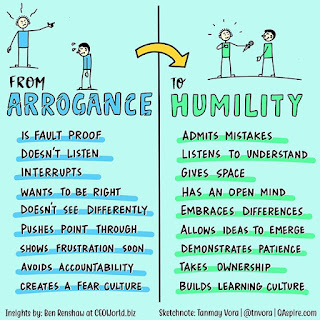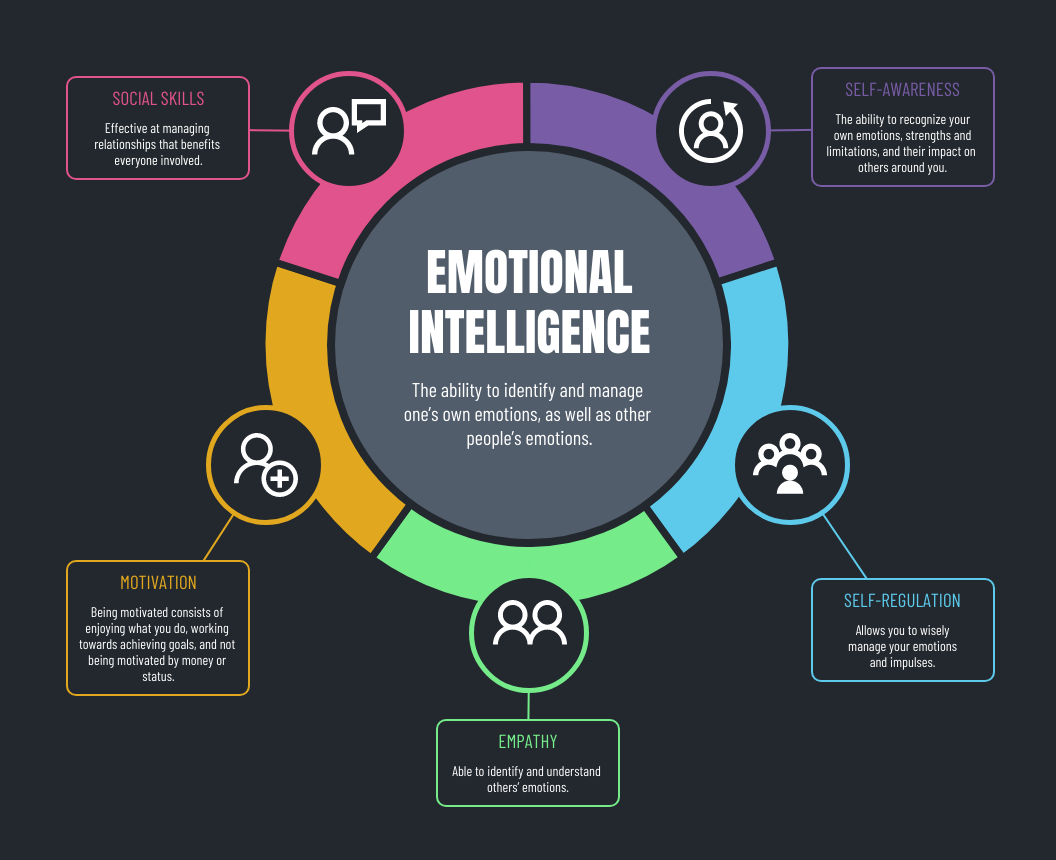Sunday, 30 July 2023
[30072023] Nurturing a Healthy Community: Combating Stalking and Respecting Privacy
Thursday, 27 July 2023
[27072023] The Unwavering Rhythm of Success: Renting Your Way to Greatness
Monday, 24 July 2023
[24072023] Striking the Perfect Balance: The Art of Being Assertive
Sunday, 23 July 2023
[23072023] The Power of One: How a Single Individual Can Make a Difference
[23072023] Embracing Humility: A Reminder That Everything is Temporary
[23072023] Steer Away and Save Yourselves! Avoid Toxic People Early!
Saturday, 22 July 2023
[22072023] The Multitasking Myth: Unraveling the Secrets of Productivity and Focus
[22072023] Playing on Both Sides? Talam Dua Muka?
[22072023] Embracing the Power of Knowledge: A Journey of Growth
In a world where information flows freely, the concept of knowledge takes on various shades of meaning. From knowing and not knowing to assuming and refusing, our attitudes towards knowledge significantly impact how we navigate through life. In this blog, we will explore the different facets of knowledge and the importance of being willing to learn and empowering ourselves with wisdom that can lead to personal growth and an enriched worldview.
Knowing: The Gateway to Understanding
Knowledge is the foundation of human progress. When we "know" something, we possess the keys to unlock the mysteries of the universe. This sense of knowing grants us confidence and the ability to make informed decisions. However, the true power of knowledge lies not only in what we already know but in our willingness to explore and expand our horizons.
Not Knowing: Embracing Humility and Curiosity
In a vast sea of information, it's essential to recognize the limits of our knowledge. Admitting that we don't know everything allows us to embrace humility, acknowledging that learning is a lifelong journey. By humbly accepting our limitations, we open ourselves to a world of possibilities, inspiring curiosity and an insatiable thirst for knowledge.
Assuming: The Pitfall of False Certainty
Assumptions can be dangerous pitfalls, leading us astray from the truth. When we assume we know something without adequate evidence, we risk perpetuating misunderstandings and misinformation. Instead, we should strive for critical thinking, questioning assumptions, and seeking evidence to arrive at well-informed conclusions.
Refusing to Know: Breaking Down Barriers
Refusing to acknowledge knowledge can be a barrier to growth. Whether driven by fear, bias, or closed-mindedness, this attitude prevents us from evolving and adapting to new information. Breaking down these barriers requires a conscious effort to remain open-minded, allowing new ideas to challenge our existing beliefs and lead us towards enlightenment.
Willing to Know: The Journey of Empowerment
A willingness to learn transforms us into empowered beings. By adopting an attitude of curiosity and a thirst for knowledge, we embark on a journey of self-improvement and intellectual growth. Embracing new perspectives, cultures, and ideas expands our understanding of the world, fostering empathy and interconnectedness with others.
Knowledge is a powerful tool that can shape our lives and the world around us. Embracing the true essence of knowing, acknowledging our limitations, challenging assumptions, and breaking down barriers, we pave the way for personal growth and societal progress. As we remain willing to learn, we open doors to endless possibilities, unveiling the true potential of our minds and the magic of the universe. So, let us embark on this journey together, embracing the power of knowledge and unleashing the force of positive change within ourselves and the world.
[22072023] Ignorance of The Law Excuses No One
The phrase "ignorance of the law is no excuse" is a legal principle that means individuals cannot avoid responsibility or liability for their actions simply because they were unaware of the law or its provisions. In other words, not knowing that a certain action is illegal does not provide a valid defense in court if you are charged with breaking the law.
This principle is an important aspect of the justice system as it promotes personal responsibility and encourages individuals to educate themselves about the laws that apply to their actions and conduct. It is assumed that citizens should make an effort to familiarize themselves with the laws of the land to ensure they abide by them.
However, it is important to note that there can be exceptions to this principle. In some specific situations, the defense of "mistake of law" may be considered, but this is usually limited to very narrow and particular circumstances, such as situations where the law itself is unclear or where there has been a change in the law that the person was not aware of.
In general, though, the principle "ignorance of the law is no excuse" underscores the importance of being aware of and abiding by the laws that govern society.
Thursday, 20 July 2023
[20072023] Tellers vs Doers
Tuesday, 18 July 2023
[18072023] Reality vs. Target
Monday, 17 July 2023
[17072023] Impress yourself!
Sunday, 16 July 2023
[16072023] PAST ≠ FUTURE
[16072023] Nurturing Your Soul: Embracing Life's Journey
Thursday, 13 July 2023
[13072023] Resilience: Unveiling the Tip of the Iceberg
Tuesday, 11 July 2023
[11072023] Forgive but never forget!
Monday, 10 July 2023
[10072023] Grace Under Fire: Keep Cool!
Saturday, 8 July 2023
[08072023] D.I.S.C.
[08072023] B. A. R. E. Enhancing Organizational Growth and Development
Friday, 7 July 2023
[07072023] The Path of Authentic Growth: Seeking Honest Feedback vs. Seeking Approval
[07072023] Unlocking Emotional Intelligence: The Key to Personal and Professional Success
Thursday, 6 July 2023
[06072023] Imperfect Perfectionist
Tuesday, 4 July 2023
[04072023] Communicate! Communicate! Communicate!
Monday, 3 July 2023
[03072023] If It's Not Broken, Then Don't Fix It: The Art of Innovation
In a world driven by constant change and progress, the notion of "If it's not broken, then don't fix it" might seem counterintuitive to innovation. After all, innovation thrives on pushing boundaries and finding new ways of doing things. However, this age-old adage holds a valuable lesson for innovators. It reminds us to balance the pursuit of progress with a thoughtful consideration of what truly needs fixing. Here, we'll explore the essence of this phrase and how it can guide us toward effective innovation.
The Pitfalls of Mindless Fixing:
It's easy to fall into the trap of thinking that everything needs improvement. The allure of novelty and the desire to be at the forefront of innovation can blind us to the value of stability and familiarity. Mindlessly fixing things that are not broken can lead to unintended consequences. It can disrupt established systems, alienate users, and consume valuable resources that could be better utilized elsewhere.
Understanding the True Meaning:
At its core, "If it's not broken, then don't fix it" is a reminder to approach innovation with discernment. It encourages us to critically evaluate the need for change before embarking on the path of innovation. Instead of pursuing change for the sake of change, we should focus on areas where improvements are genuinely needed.
Identifying Opportunities for Innovation:
To determine whether something truly needs fixing, it is crucial to consider the following factors:
User Feedback: Listening to the needs and feedback of users is invaluable. It provides insights into areas where improvements would make a meaningful difference. By understanding the pain points and desires of users, we can target our innovative efforts effectively.
Market Demand: Examining market trends and anticipating future needs can guide us toward identifying areas ripe for innovation. By understanding the evolving landscape, we can proactively address emerging challenges and seize opportunities.
Efficiency Gains: Improving efficiency can be a compelling reason to introduce changes. If an existing process or system is holding back productivity or hindering growth, it may be worth exploring innovative alternatives.
Impact Assessment: We must assess the potential impact of our innovations. If a proposed change does not significantly enhance the user experience, streamline operations, or solve a problem, it may be best to preserve what already works.
The Art of Incremental Innovation:
Innovation does not always have to be radical. Incremental innovation, where small, targeted improvements are made over time, can be just as valuable. By building upon existing successes and addressing specific pain points, incremental innovation ensures stability while continuously enhancing the overall experience.
Preserving Core Values:
While we strive for innovation, it is essential not to lose sight of the core values and principles that define our products, services, or organizations. Innovation should align with these values and respect the foundations that have brought us success. By striking the right balance between preservation and progress, we can foster sustainable growth.
The mantra "If it's not broken, then don't fix it" serves as a reminder that innovation should be purposeful and deliberate. Rather than blindly pursuing change, we should critically evaluate whether something truly needs fixing. By focusing our innovative efforts on areas where improvement is genuinely needed, we can drive meaningful progress while preserving what works. In this delicate balance, we find the art of innovation.
[25042025] Melepaskan Anjing Tersepit
Melepaskan Anjing yang Tersepit: Antara Nilai Kemanusiaan dan Pengajaran Kehidupan Pernahkah kita terdengar peribahasa Melayu, "Melepa...
-
What is "Mengadu Domba"? In Malay, "mengadu domba" literally translates to "complaining like a goat. " Howe...
-
Once upon a time, in a faraway land, there lived a king whose castle was modest but whose subjects were safe, prosperous, and content. Howev...
-
Praise be to Allah For all the blessings For all the barakah For all the bounties For my beloved family For my friends and companions For al...































